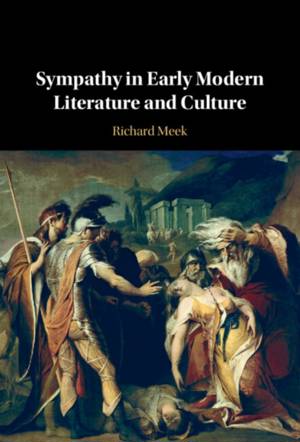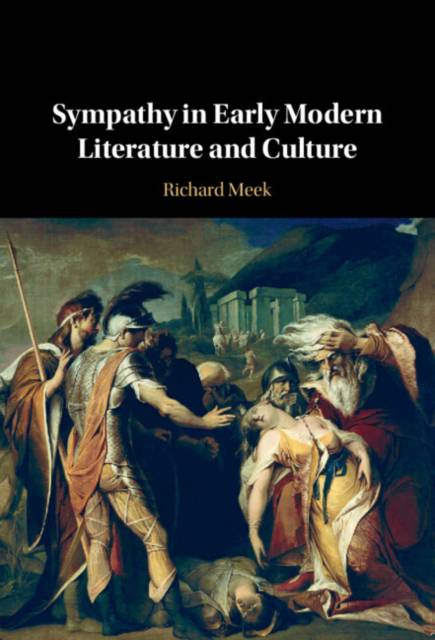
Door een staking bij bpost kan je online bestelling op dit moment iets langer onderweg zijn dan voorzien. Dringend iets nodig? Onze winkels ontvangen jou met open armen!
- Afhalen na 1 uur in een winkel met voorraad
- Gratis thuislevering in België vanaf € 30
- Ruim aanbod met 7 miljoen producten
Door een staking bij bpost kan je online bestelling op dit moment iets langer onderweg zijn dan voorzien. Dringend iets nodig? Onze winkels ontvangen jou met open armen!
- Afhalen na 1 uur in een winkel met voorraad
- Gratis thuislevering in België vanaf € 30
- Ruim aanbod met 7 miljoen producten
Zoeken
€ 158,95
+ 317 punten
Omschrijving
This is the first comprehensive study of sympathy in the early modern period, providing a deeply researched and interdisciplinary examination of its development in Anglophone literature and culture. It argues that the term sympathy was used to refer to an active and imaginative sharing of affect considerably earlier than previous critical and historical accounts have suggested. Investigating a wide range of texts and genres, including prose fiction, sermons, poetic complaint, drama, political tracts, and scientific treatises, Richard Meek demonstrates the ways in which sympathy in the period is bound up with larger debates about society, religion, and identity. He also reveals the extent to which early modern emotions were not simply humoral or grounded in the body, but rather relational, comparative, and intertextual. This volume will be of particular interest to scholars and students of Renaissance literature and history, the history of emotions, and the history and philosophy of science.
Specificaties
Betrokkenen
- Auteur(s):
- Uitgeverij:
Inhoud
- Aantal bladzijden:
- 298
- Taal:
- Engels
Eigenschappen
- Productcode (EAN):
- 9781009280266
- Verschijningsdatum:
- 13/04/2023
- Uitvoering:
- Hardcover
- Formaat:
- Genaaid
- Afmetingen:
- 152 mm x 229 mm
- Gewicht:
- 576 g

Alleen bij Standaard Boekhandel
+ 317 punten op je klantenkaart van Standaard Boekhandel
Beoordelingen
We publiceren alleen reviews die voldoen aan de voorwaarden voor reviews. Bekijk onze voorwaarden voor reviews.











